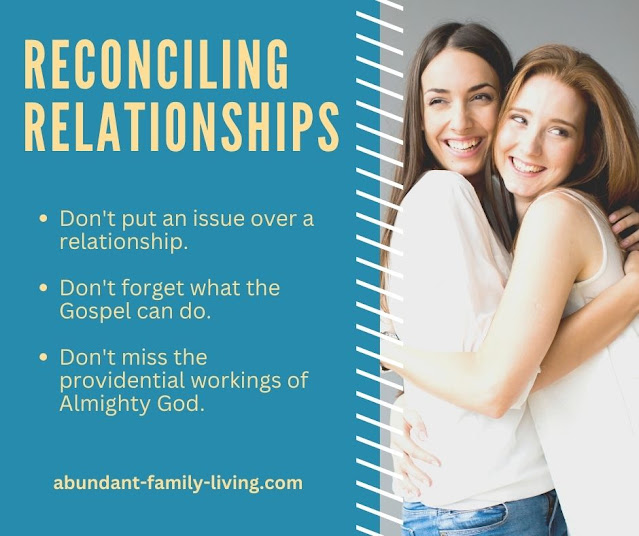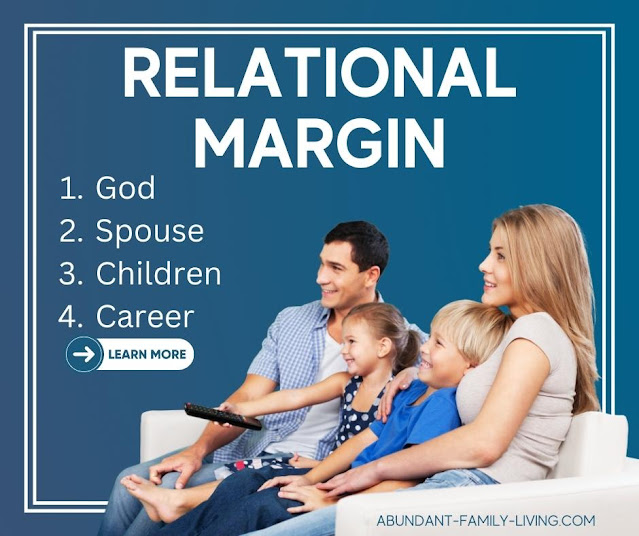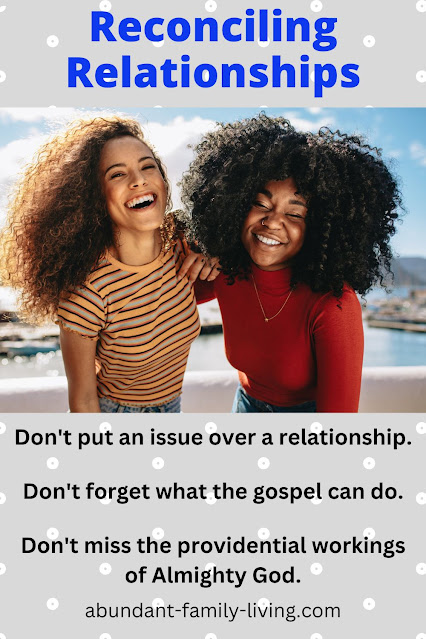 |
| Reconciling Relationships |
At the end of a calendar year, we tend to reflect on the past 12 months. We think about all the things that have happened in a year's time and how those happenings affected us throughout the year. Sometimes we find ourselves grieving the loss of a relationship, sometimes a long-time friendship and sometimes a family member. No matter the grievance that separated a once very close relationship, there is hope of reconciliation. You might be thinking, "Oh but you don't understand. There is no way I can ever get over what that person did to me," or you might be thinking, "Oh but you don't understand. There is no way that person can ever forgive what I did to him or her. I caused so much pain." Well, I understand that. I know that some things take a lot more effort than other things. Some relationships are broken over a level of betrayal and hurt that our human hearts could never heal on our own - on our own - but when Jesus meets us in our hurt, reconciliation is possible. This is different from circumstances where there was abuse. God can forgive that too but I know that sometimes we have to draw boundaries, sometimes permanent boundaries, especially where abuse is part of the equation. In those cases, forgiveness is still possible and that is a whole other conversation for another day with someone much more qualified than me to address those situations. For now, let's focus on reconciling relationships that were broken over other things. There is a whole list of possibilities here but let's go straight to scripture and look at Paul's letter to Philemon. Paul's letter to Philemon deals with forgiveness and reconciliation.
Read the Scripture in full context here at Bible Gateway.
This post is written from my personal Bible study notes taken during my pastor's sermon.
Reconciling Relationships
1. Don't put an issue over a relationship.
Remember that tone and words matter. Sometimes it is not what we say that is hurtful but it's how we say it. In Philemon, verse 9, Paul writes that his letter is for love's sake.
Yet for love's sake, I rather appeal to you - since I am a person such as Paul, an old man, and now also a prisoner of Christ Jesus. - Philemon 9
Motives matter. Reconciliation is drawn out of love.
But God demonstrates His own love toward us, in that while we were still sinners, Christ died for us. Romans 5:8
 |
| This wall art based on Romans 5:8 is available here. |
Elevate love and relationships over issues. We can reconcile.
2. Don't forget what the gospel can do.
Onesimus was a thief who ran away, but Paul calls him his child. Onesimus got saved. The gospel changes everything.
(Here is a helpful commentary on Onesimus.)
The gospel can change anyone. No sin or any past is bigger than the gospel. The gospel changes relationships.
A renewal in which there is no distinction between Greek and Jew, circumcised and uncircumcised, barbarian, Scythian, slave, and free, but Christ is all, and in all. Colossians 3:11
In Philemon, verse 16, Paul writes about Onesimus.
No longer as a slave, but. more than a slave, a beloved brother, especially to me, but how much more to you, both in the flesh and in the Lord. Philemon 16
Relationships will never be what they were meant to be unless all parties know Jesus. The gospel is the foundation for reconciliation.
3. Don't miss the providential workings of Almighty God.
In Philemon, verse 15, Paul writes about the separation between Philemon and Onesimus.
For perhaps it was for this reason that he was separated from you for a while, that you would have him back forever. Philemon 15
God's plans are eternal, not temporal.
Finally, let's remember that in some way or another, we are all an Onesimus.
This post was written from my personal Bible study notes taken during my pastor's sermon. You are invited to watch that sermon here:
You might also like:
 |
| Setting Relational Margins |
 |
| Reconciling Relationships |





No comments:
Post a Comment